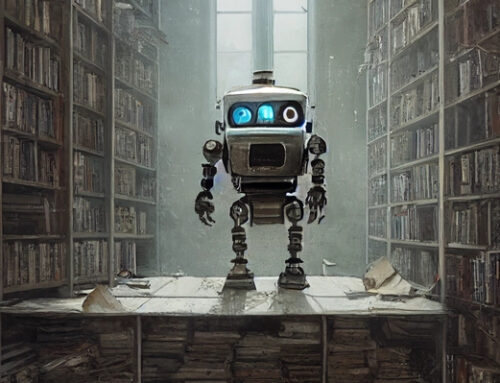Image by Markus Spiske via Unsplash
Quantum computers promise to change the world. From the world’s biggest tech giants to the most powerful nations, everyone seems to be building a quantum computer. It’s easy to understand why—quantum computers are expected to have major commercial and security impacts.
We often hear bad news about the threats of quantum computers. But how will they change our lives for the better?
Better Medications
Last year, the global community created multiple COVID-19 vaccines in record-breaking time. It was an impressive feat of scientific ingenuity. But imagine if instead of a year, we could develop new drugs in a matter of days.
This is one area in which quantum computers promise to improve our lives. Experts around the globe agree that we will see more and more pandemics as human beings continue to encroach on the natural world. At the same time, our world is becoming increasingly globalized, making it tricky to control the spread of viruses—which travel faster and further than ever before.
Drugs are normally developed via processes that take over a decade and cost billions of dollars. Part of the challenge is that researchers have to filter through millions of molecules in order to identify the promising few with potential to be used in medicines.
This process is essentially one giant optimization problem—exactly the type of problem quantum computers are built to solve. Quantum computers could give us the power to develop new drugs at lightning-speed, making us more responsive to future pandemics. They could also change the face of personalized medicine, giving us the ability to rapidly develop drugs to treat obscure illnesses that don’t currently receive the attention of the pharmaceutical industry.
Read more about how quantum computers will transform drug development here.
More Objective Algorithms
Algorithms increasingly rule decision-making processes across many industries. From generating ads for things you might like to buy, to assessing risk in the criminal justice system, machine learning is shaping our world in so many ways.
This new reality has its advantages. But what happens when human bias is baked into these algorithms? We’re already witnessing some of the insidious effects—women are not shown the same job search results as men, and dark-skinned individuals are wrongly sentenced to jail time. As machine learning technology becomes more embedded in our everyday lives, algorithmic bias becomes a serious concern.
We all have our own biases. Algorithmic bias occurs when the human teams building algorithms consciously or unconsciously transfer their biases into their work. This creates biased data sets which are used to train algorithms, until the algorithm can’t think any other way.
While human bias will always exist, quantum computers should be able to address the problem of biased data sets. More complex data sets can offset the risk of algorithmic bias, by including more varied information. But today’s computers can only compute so much data. The super-charged computational power of quantum computers could help to make algorithms more objective by enabling them to learn from a far larger and more diverse set of data.
Read more about the promise of quantum-powered algorithms here.
Fighting Climate Change
Quantum computers could help us fight the biggest threat to our society: climate change. Here are just three examples of how our planet could benefit from quantum computers.
Converting Carbon Dioxide
Experts agree that we have to eliminate existing carbon dioxide from our atmosphere. Planting trees is one way to do this, but it’s not enough. One possible solution is to create what’s known as a chemical catalyst, something that can be used to convert carbon dioxide into the chemical building blocks of useful products like fuel and plastics. Quantum computers could identify the cheapest, most energy-efficient, and easiest-to-make compounds for the job.
Building Better Batteries
Quantum computers could revolutionise the renewable energy sector by solving one of its most difficult problems: battery storage. Today’s renewable energy batteries are prohibitively expensive and can’t store energy for long. Quantum computers could improve them by simulating the complicated chemistry required to make better batteries. Businesses are already starting to realise the potential of quantum computers in this area—last year Mercedes-Benz partnered with IBM’s quantum computing program to develop better batteries for their electric cars.
Modeling Climate Change
Current climate modeling technology struggles to paint an accurate picture of the catastrophic threat of climate change. That’s because modeling the many variables that interact in the earth’s climate system is incredibly hard to compute. It’s difficult enough for meteorologists to get a 10-day weather forecast right—imagine consolidating trillions of highly specific and ever-changing data points on atmospheric and ground conditions to predict the weather decades in the future. Quantum computers will have the capacity to handle such immense data sets, and will provide us with a far better understanding of the exact risks we face and how to counter them.
Read more about how quantum computing will help us fight climate change here.
Quantum computing holds immense promise for confronting some of the biggest challenges society will face in the coming decades. There’s still a way to go before quantum computers are advanced enough to perform the functions outlined in this article. Until then, we must make the effort to ensure quantum computing and its applications are channeled responsibly toward the betterment of society in the future.







Leave a Reply